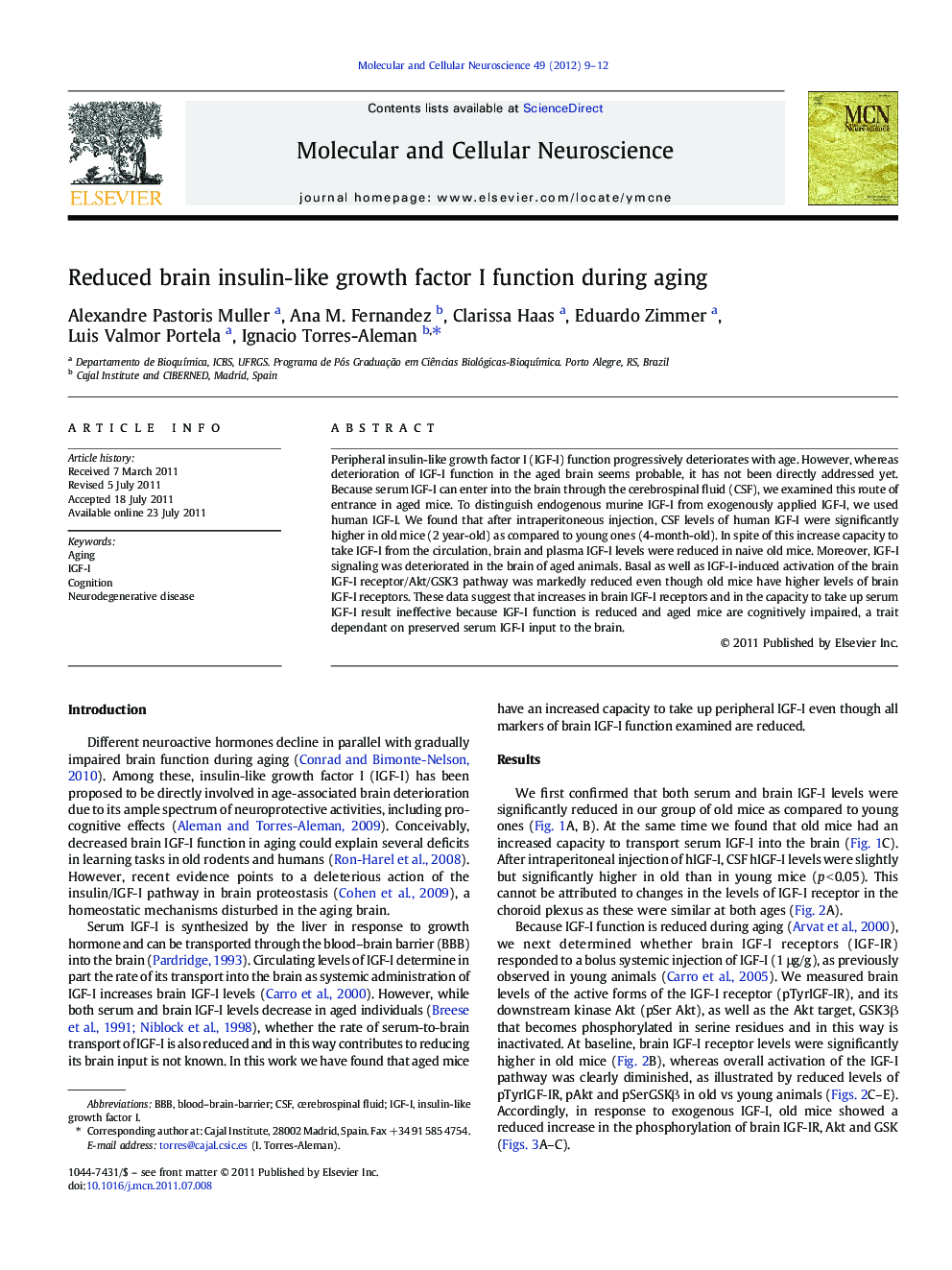| Article ID | Journal | Published Year | Pages | File Type |
|---|---|---|---|---|
| 2198611 | Molecular and Cellular Neuroscience | 2012 | 4 Pages |
Peripheral insulin-like growth factor I (IGF-I) function progressively deteriorates with age. However, whereas deterioration of IGF-I function in the aged brain seems probable, it has not been directly addressed yet. Because serum IGF-I can enter into the brain through the cerebrospinal fluid (CSF), we examined this route of entrance in aged mice. To distinguish endogenous murine IGF-I from exogenously applied IGF-I, we used human IGF-I. We found that after intraperitoneous injection, CSF levels of human IGF-I were significantly higher in old mice (2 year-old) as compared to young ones (4-month-old). In spite of this increase capacity to take IGF-I from the circulation, brain and plasma IGF-I levels were reduced in naive old mice. Moreover, IGF-I signaling was deteriorated in the brain of aged animals. Basal as well as IGF-I-induced activation of the brain IGF-I receptor/Akt/GSK3 pathway was markedly reduced even though old mice have higher levels of brain IGF-I receptors. These data suggest that increases in brain IGF-I receptors and in the capacity to take up serum IGF-I result ineffective because IGF-I function is reduced and aged mice are cognitively impaired, a trait dependant on preserved serum IGF-I input to the brain.
